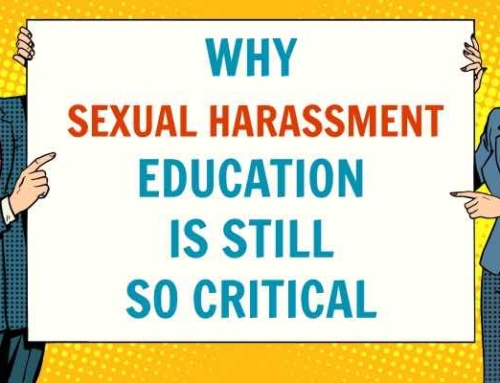Will Bill 23 Make a Concrete Difference on Campus?
Over the last while, I have had the opportunity to work with a number of post-secondary institutions in British Columbia. They have one thing in common at the moment. They are either working on creating (or have already created) a new Sexual Assault policy to add to their safety and security portfolio of programs.
So why is a Sexual Assault Policy Important – And Why Now?
On April 27th, 2016, Bill 23: The Sexual Violence and Misconduct Policy Act was introduced in the British Columbia legislature.It created a one-year time frame for which all public post-secondary institutions in the province to develop policies to comply with the new law.
Important Lessons for Business
Within the introduction of the new legislation, the Minister of Advanced Education, Andrew Wilkinson, noted the following:
“This legislation will require all institutions in our public post-secondary sector in British Columbia to establish and implement a sexual misconduct policy that addresses a wide range of sexual assault, sexual harassment, misconduct and other preventable episodes which require a response. These policies will also be required to set up procedures on how an institution will address these issues and to require reporting of these incidents on a regular basis.”
The law respects the autonomy of the institutions and permits significant latitude for them to set their policies in order to meet the needs of their students. There is a firm requirement that the policy (along with education and prevention) create a safer environment for students to come forward to report sexual misconduct of all types.
There have been several incidents over the past few years where crimes involving sexual violence have been reported on university and college campuses in the province and it has been felt that more could (and should) be done to deal with these preventable incidents.
Interestingly, this legislation was first proposed on March 8, 2016, by MLA Andrew Weaver. He is the sole member of the Green Party in the BC Legislator, who submitted it as a Private Member’s Bill. The Government adoption of the legislation proposed by other parties is very rare, if not unprecedented. Since 2001, Opposition Members have introduced 202 Private Members’ Bills, but none have passed.
This one did succeed.
Sexual Violence Definition Expanded
Under the new legislation, the definition of ‘sexual violence’ has been expanded. It now includes the non-consenting distribution of sexually explicit photos and videos, as well as the threat of sexual misconduct.
Institutions are required to consult with students on the development of their new policy to address sexual misconduct and also to conduct surveys to assess the effectiveness of these policies. Once established, their new policy needs to be reviewed — with student consultation — at least once every three years or more frequently as directed by the Minister’s office.
There are a couple of overriding themes throughout the legislation.
- Firstly, the scope of the new law is to include behaviour that might previously have been ignored (and we all know what happens when low-level behaviour is dismissed as not being important.
- Secondly, the fact that during the policy’s development students within the institution MUST be engaged for an ongoing review of the policy’s effectiveness.
This is a fantastic concept!
The people for whom the policy is being developed (the students) are actually required to be consulted throughout the process in order to ensure that the policy is going to be relevant to them.
This confirms what every Human Resource and Safety professional has known forever. That you cannot take a generic template and insert it into your policy manual and consider it “job done!
[content_boxes layout=”icon-with-title” columns=”4″ class=”” id=””]
[content_box title=”RELEVANCY” backgroundcolor=”” icon=”fa-check” icon_circle_size=”small” icon_align=”left” iconcolor=”” circlecolor=”” circlebordercolor=”” iconflip=”” iconrotate=”” iconspin=”no” image=”” image_width=”35″ image_height=”35″ link=”” linktarget=”_self” linktext=”” animation_type=”0″ animation_direction=”down” animation_speed=”0.1″]MAKE SURE THE POLICY IS RELEVANT TO YOUR UNIQUE SITUATION AND NOT A COOKIE CUTTER VERSION OF ONE YOU FOUND ONLINE[/content_box]
[/content_boxes]
It must be RELEVANT.
Policies must be reviewed regularly (at least every 3 years according to the law) to make sure that it is still relevant.
When I joined the Metropolitan Police Force in London in 1978, the first day I arrived at Hendon Training School I was given a very thick training manual called “The Instruction Book.” It was handed to me (and every other recruit) with the explicit instructions that, ‘everything I needed to know about being a successful police officer was contained within its pages.’
I began reading through the manual as if my life depended on it (which I thought it might) but my belief that this document held the secret to my career was dashed when I came across one particular procedural page.
It was titled: How to Catch a Runaway Horse. Talk about a total lack of relevance. This was 1978…… not 1878!
I was a police officer for 8 years in Notting Hill in central London, and not once did I ever have an occasion to see a runaway horse, let alone a need to catch one.
Obviously, no-one had reviewed the manual since it was written by Sir Robert Peel (the Father of Modern Policing) in 1839!
By the way, should you ever see a runaway horse, HERE IS WHAT TO DO!
Make sure that you run in the same direction as the horse!
So, to every organization out there:
Please ensure that you engage the people whom your policies are designed to protect in their development as well as in their ongoing review.
The goal is to make them RELEVANT.
That is what Bill 23 is designed to do.







Leave A Comment